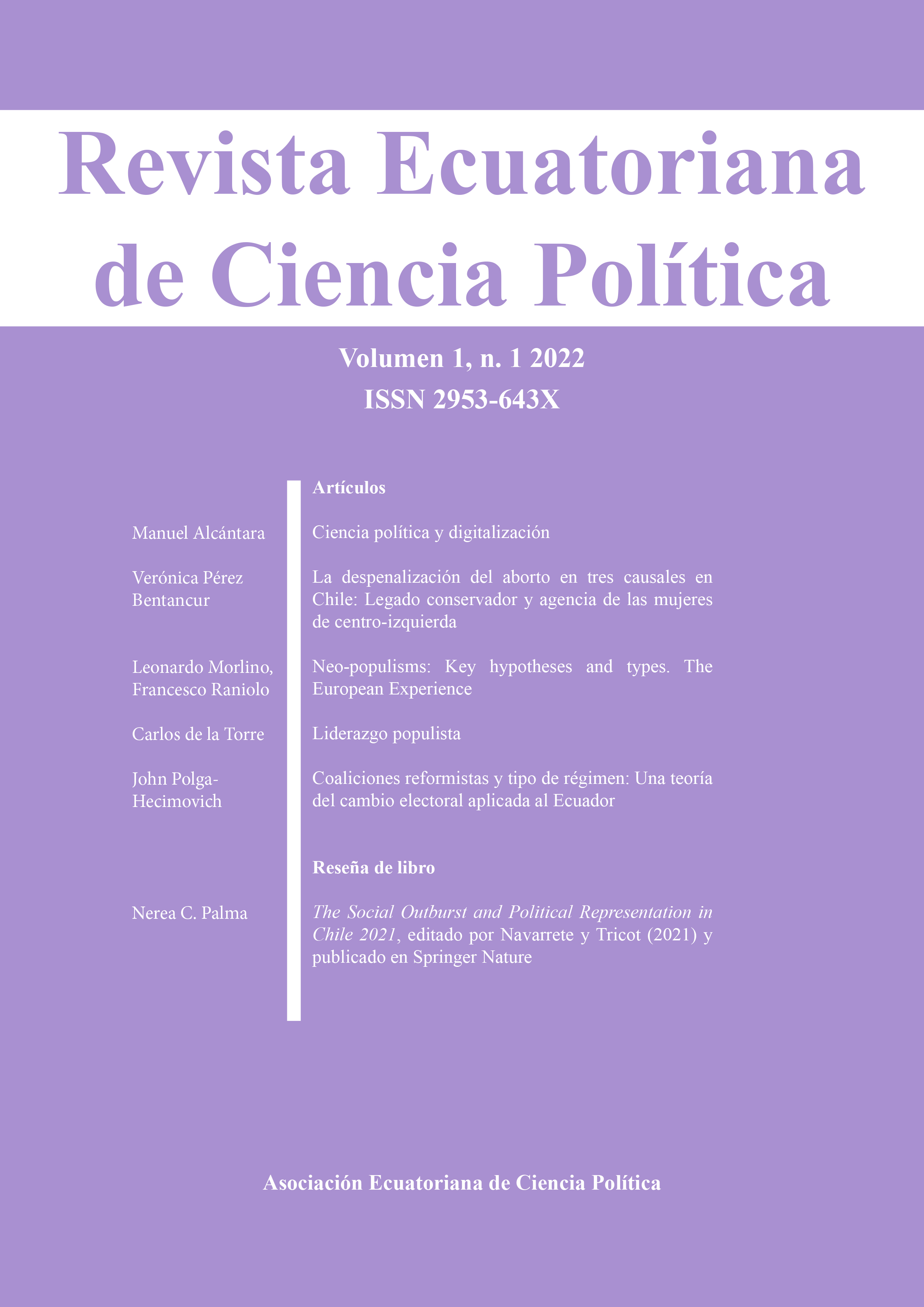Neo-populisms: Key hypotheses and types. The European Experience
DOI:
https://doi.org/10.59352/recp.v1i1.28Keywords:
revendivative populism, identitarian populism, responsiveness, inequality, irresponsibilityAbstract
What happens when, after a resounding electoral victory, populist parties and their leaders
become prime ministers or ministers in governments or participate in the decision-making
process? To reply to such a question, first, the authors propose a simple distinction between
two neo-populisms and then control if there is adaptive institutional responsiveness with a
possible consequent improvement of social rights and lowering of inequalities. The main
conclusion suggested by the empirical analysis is that revendicative and redistributive
leaders and parties are more likely to succeed in economically weaker countries. However,
the cost of such a success is the political irresponsibility that may bring the democratic
regime to bankruptcy.

Published
How to Cite
Issue
Section
License
Copyright (c) 2022 Leonardo Morlino, Francesco Raniolo

This work is licensed under a Creative Commons Attribution-ShareAlike 4.0 International License.
All the contents of this electronic edition are distributed under the Creative Commons license of “Attribution-ShareAlike 4.0 International” (CC-BY-SA). Any total or partial reproduction of the material must cite its origin.
The rights of the published images belong to their authors, who grant Diseña the license to use them. The management of the permits and the authorization of publication of the images (or of any material) that contains copyright and its consequent reproduction rights in this publication is the sole responsibility of the authors of the articles.




